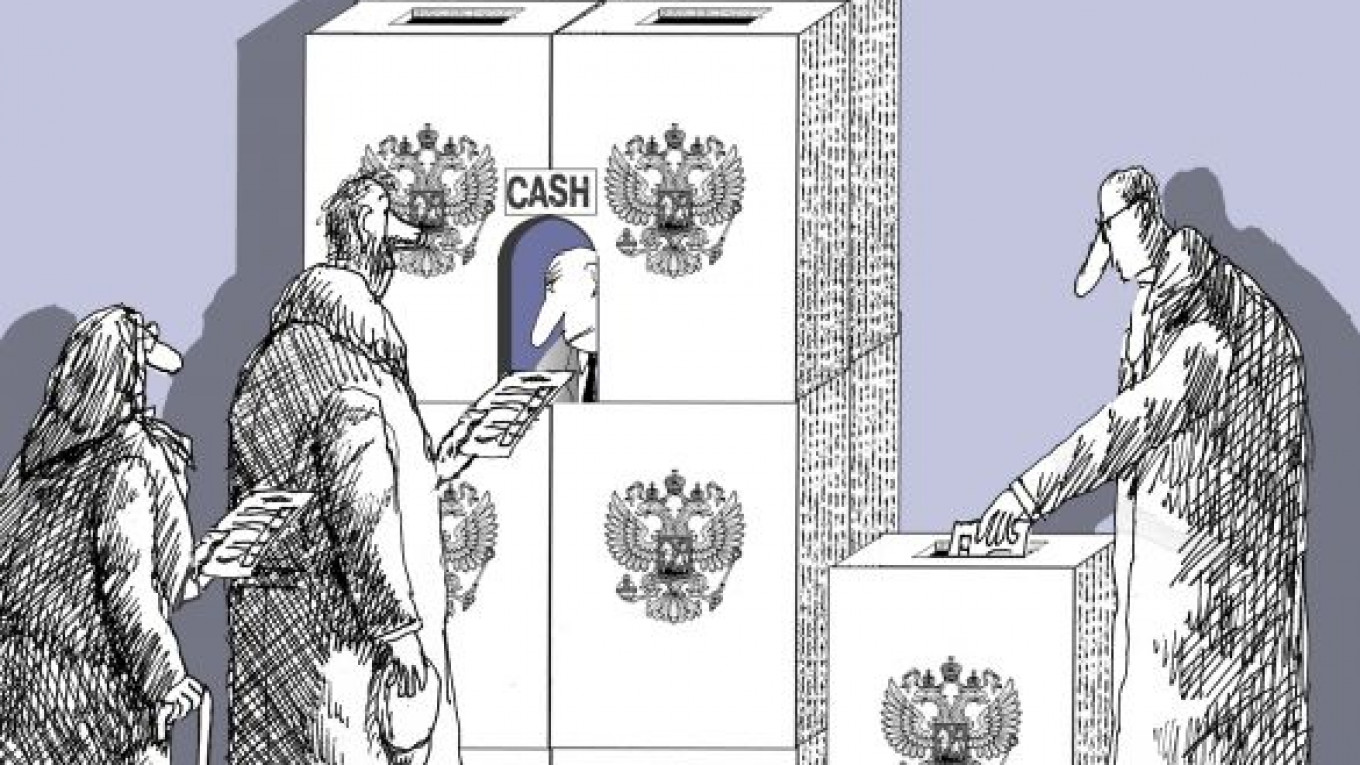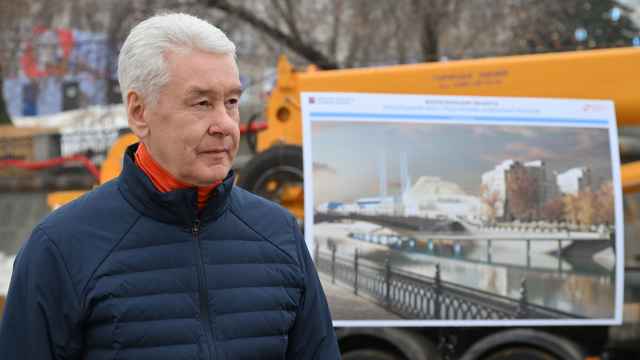Like 28,000 other people, I volunteered as an observer Sunday during the presidential election. In fact, I served as an observer twice that day. In the morning, I registered as an observer at one polling station, drove off at midday with a mobile group of observers to catch electoral violations elsewhere, and then I returned to the original location by 8 p.m. to keep watch over the counting of ballots until 5 a.m.
Two things about this experience left the most vivid impression on me.
At the first polling station that I observed — No. 79 at 10 Stolovy Pereulok in central Moscow — voting was 100 percent honest. Not one single violation was noted. Who was the winner at this station? Mikhail Prokhorov with 561 votes, while Putin received 525.
I don't know why this particular polling station was so squeaky clean, but it might have been because I was such a pain in the neck, watching every action that took place there. But in any case, the results that I observed are a reliable yardstick.
Of course, I understand that the voter constituency at a polling station in central Moscow differs markedly from one in a blue-collar neighborhood in an outlying industrial area, the backbone of Putin's electorate. But judging from the level of falsification that I saw at other polling stations that day, I would estimate that not more than 35 percent of the Moscow vote went to Putin.
The second thing that left a big impression on me was my experience with the mobile group as it monitored the employees of the United Energy Company, a large electricity provider for Moscow homes and businesses, and their attempt to engage in "carousel" voting at multiple voting stations. We arrived at the company's offices in the Fili district of Moscow at 10 a.m. and watched as the workers were herded into buses. Two members of our observer group snuck onto one of the buses that headed off for Tsaritsyno in the south of the city.
They kept us abreast of how the carousel operation was proceeding by flooding us with text messages from the bus. But when a Ren-TV crew pulled up in response to our tip and began filming the bus, the "voters for hire" got scared. For a full hour, the organizers of the carousel discussed what to do and finally directed the voters to go by foot to Polling Station No. 1946, where their names had previously been placed on a supplementary list as a backup plan. With a TV crew and a handful of us looking on, it came as no surprise that the workers were instructed to vote just once and go home.
Nonetheless, we were still able to observe how hired voters operate. After downing one free drink after another for four hours, they were as drunk as a skunk when they finally reached the voting station. Most important, every hired voter voted for Vladimir Putin, as instructed. We know because they made no secret of how they voted.
Thus, successful middle-class professionals voted against Putin, while the downtrodden and easily intimidated voted for Putin.
At first, I was angry at those carousel voters who pocketed 600 rubles ($20) to attend pro-Putin rallies and the countless people who sold their absentee ballots for 400 rubles. I even felt that those people should be deprived of their voting rights for abuse of electoral procedure in the same way drivers lose their license for drunk driving.
And then I thought up a great idea to solve the problem. The modern system of voting in elections actually limits people's choices. As it stands now, voters must choose between a list of candidates.
But what if they don't want to vote for anyone on the list and "none of the above" is not an option on the ballot?
What if registered voters only want a bottle of vodka? Their wishes should also be respected. They should have a choice between voting and receiving a bottle of vodka.
This way everyone is happy — from drunks to people who want Russia to have more honest elections.
This, in essence, would be a way to legalize the underground practices of paying for votes and make it transparent. After all, since the will of the voter is sacred, we should let voters exercise this will by selling their votes legally if they don't want to vote at all. The government could pay, let's say, 500 rubles to those who don't want to vote and their name would be stricken from the list. At 500 rubles, the government would remain competitive with those who pay for votes illegally and would allow participants to buy several bottles of vodka and some salty dry fish to boot.
Can you imagine how many fewer votes Putin would have received on Sunday if this practice were in place?
Yulia Latynina hosts a political talk show on Ekho Moskvy radio.
A Message from The Moscow Times:
Dear readers,
We are facing unprecedented challenges. Russia's Prosecutor General's Office has designated The Moscow Times as an "undesirable" organization, criminalizing our work and putting our staff at risk of prosecution. This follows our earlier unjust labeling as a "foreign agent."
These actions are direct attempts to silence independent journalism in Russia. The authorities claim our work "discredits the decisions of the Russian leadership." We see things differently: we strive to provide accurate, unbiased reporting on Russia.
We, the journalists of The Moscow Times, refuse to be silenced. But to continue our work, we need your help.
Your support, no matter how small, makes a world of difference. If you can, please support us monthly starting from just $2. It's quick to set up, and every contribution makes a significant impact.
By supporting The Moscow Times, you're defending open, independent journalism in the face of repression. Thank you for standing with us.
Remind me later.






